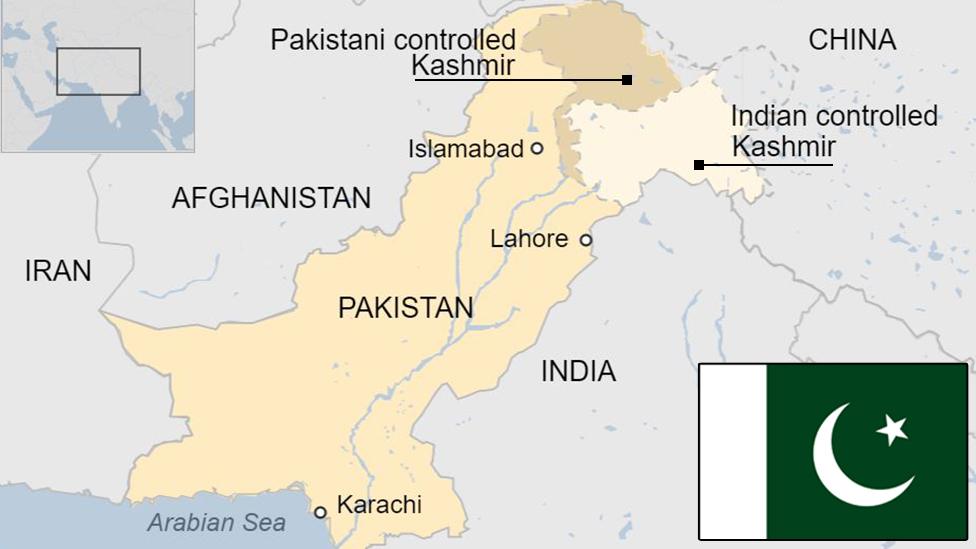Viewpoint: Pakistan civil society under threat
- Published
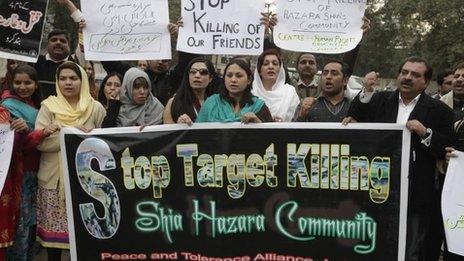
Members of the Shia Hazara community feel the government is not doing enough to protect them
Religious radicals, right-wing politicians and some elements in the security services are increasingly harassing non-governmental organisations (NGOs), human rights workers and other civil society groups, even as Pakistan enters into a delicate political phase with polls imminent, writes author Ahmed Rashid.
The space for NGOs and civil society workers appears to be shrinking as they receive threats, several have been killed and others forced to go into hiding. There appears to be less protection for NGO workers at a time they are badly needed as the state fails to carry out basic functions such as education and health care.
At the same time there is growing intolerance in society as the use of violence and weapons to address grievances rather than courts of law is on the increase.
At least 19 male and female officials working with a countrywide children's polio immunisation campaign have been killed by the Taliban and other Islamic radicals since last July. The worst incident took place in December when five health workers were shot dead by militants in different parts of the country.
Pakistan's Foreign Minister Hina Rabbani Khar and UN Secretary General Ban Ki-moon condemned the killings, with Mr Ban saying they were "cruel, senseless, and inexcusable". But nobody has been caught and the government appears paralysed - unable to prevent further killings.
In a worrying development this year, policemen escorting polio teams are now being deliberately targeted.
The vaccination drive remains partially suspended in two of Pakistan's four provinces - Sindh and Khyber Pakhtunkhwa (KP) - and despite the deployment of security forces, there is no indication when the vaccination drive can be completed.
Vicious campaign
Last October the young but prominent educationalist Malala Yousafzai was attacked in her school bus and had to be flown to England for a series of operations. Her attackers were self-proclaimed Pakistani Taliban. Malala, who is only 14, has become an international celebrity and has now been nominated for the Nobel Peace Prize, but it is still not safe for her to come home.
Asma Jahangir, the country's leading human rights lawyer and women's rights advocate, has been forced to respond to a campaign launched by right-wing politicians such as Imran Khan and religious leaders who have called her unsuitable to become the caretaker prime minister when parliament is dissolved.
In reality, no political party has nominated her for the job and it is only the speculative Pakistani media that has suggested her. She has several times refuted claims that she would ever be a candidate for such a job and yet she continues to be attacked by political parties.
On 6 February she delivered a blistering rebuttal to Imran Khan, describing his statement against her as "illogical but also vicious", saying that he seems to be acting on the cue of the "establishment" which is shorthand for the army.
His PTI party responded by "taking note" of her comments, reasserting their belief she is not suitable for the job and accusing her of bias against the party.
Meanwhile, Human Rights Watch (HRW) and its representative in Pakistan, Ali Dayan Hasan, have been accused by the army of maligning Pakistan in a recent report, which the army described as "a pack of lies, propaganda-driven and totally biased".
A statement by the media wing of the military said that HRW was trying to add fuel to "ongoing sectarian violence" in Pakistan.
The military has never before used such language. It was responding to HRW's World Report 2013, a 665-page annual tome which covers human rights in every country in the world and is compiled in New York.
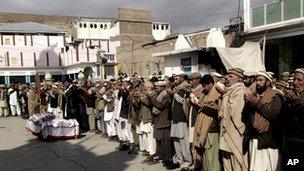
Polio teams and those escorting them are being targeted by militants
The report said "the security and intelligence services" have "continued to allow extremist groups to attack religious minorities". It also said Pakistan's human rights worsened in 2012 and the military perpetrated "abuses with impunity in Balochistan".
In fact, such charges against the security forces have been made repeatedly over the years by the Supreme Court of Pakistan, local media groups and other local and international human rights groups such as Amnesty International and the New York-based Committee to Protect Journalists. In March 2012, the Supreme Court issued a stern warning to military intelligence services not to overstep their writ, with Chief Justice Iftikhar Chaudry saying: "Who gave you the right to hound people?"
Foreigners not immune
In 2012, more than 400 Shias, most of them belonging to the Hazara community of Balochistan, were killed in targeted attacks by Sunni militants. So far this year, more than 100 Shia Hazaras have been killed. No culprits have been arrested and the Hazaras are now fleeing Pakistan en masse as the government provides no relief.
Meanwhile some 800 schools have been closed down in KP province and the Federal Administered Tribal Areas because of attacks by militants, while hundreds of primary schools are shut in Balochistan because of violence. Teachers have fled these areas and NGOs dealing with health and education have reduced their operations because of security threats.
Farida Afridi, a prominent activist working with tribal women in KP province, was shot dead in July 2012. In January 2013 gunmen shot dead seven aid workers including six women working with "Support with Working Solutions", a local NGO in KP province. The culprits have not been found.
Foreign aid workers are not immune. A British Muslim doctor working for the International Committee for the Red Cross, Khalil Dale, was kidnapped and then killed in April 2012. More than 60 foreign aid workers left Pakistan in 2012, largely because of security concerns or the refusal of the authorities to renew their visas.
Suspicions against foreign NGOs have increased substantially after an unethical ruse by the US Central Intelligence Agency to try to kill Osama bin Laden, by using a fake NGO to try to obtain his blood sample.
In the next few months, general elections are expected to be held. But there is a grave political crisis with some parties wanting to delay the elections and the ruling party accusing unnamed dark forces of conspiring to do this. If elections are held, civil society groups are expected to be at the forefront of monitoring the polls, as they have done for past elections.
However, the lack of protection for NGOs, the inability or refusal of the state machinery to protect them and the growing intolerance of their neutral stance is dismaying many.
- Published23 December 2013
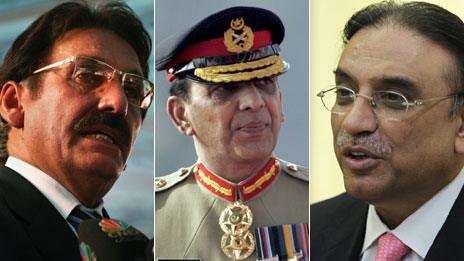
- Published11 January 2013
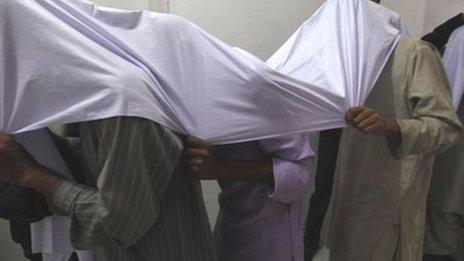
- Published15 March 2024
